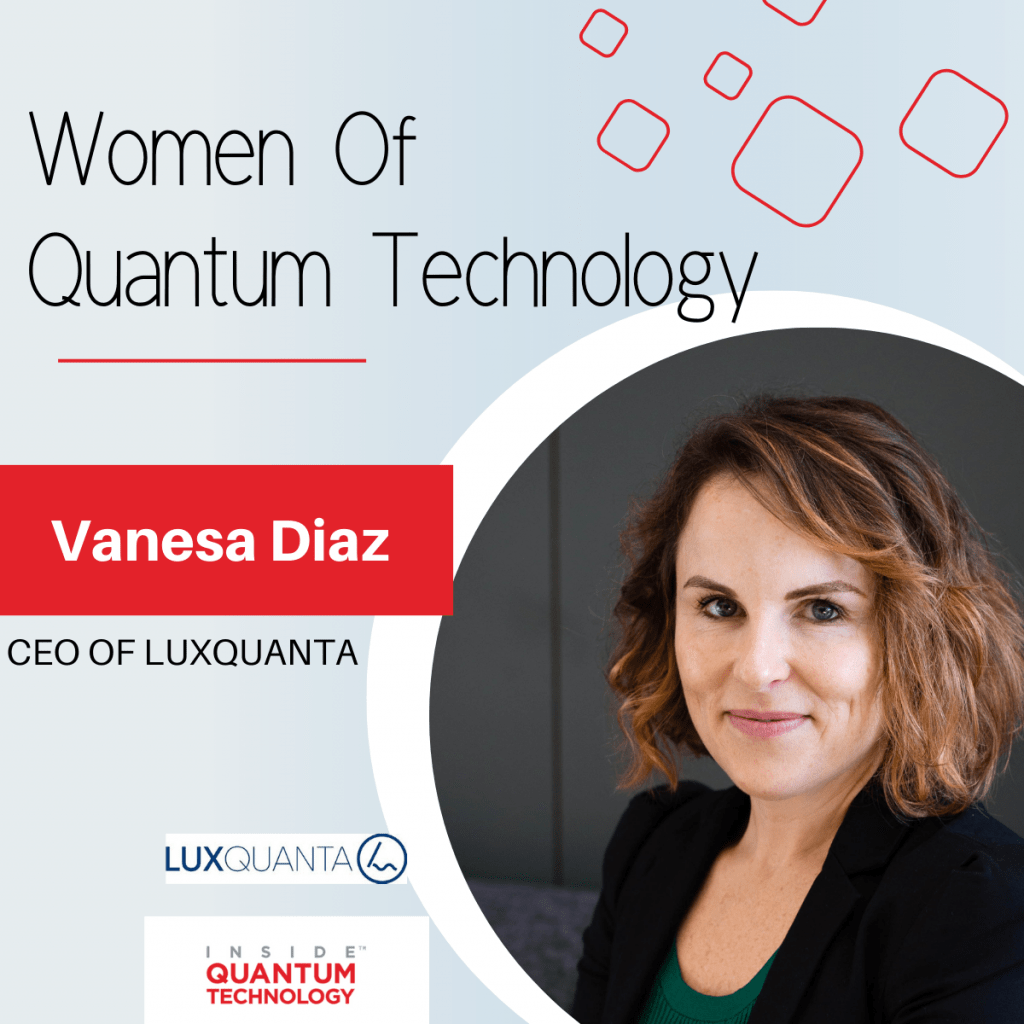Industries like telecommunications or technology often allow for smoother transitions to the quantum industry than other fields. This was evident to Vanesa Diaz, the CEO of LuxQuanta, a market-leading European quantum company specializing in quantum cryptography. “I was a telecommunications engineer for 18 years,” Diaz explained. “So, I was already interested in technology and communication.” As a lifelong learner, Diaz found herself drawn to quantum science through watching several quantum documentaries. “They always fascinated me, especially the ‘magic’ of that realm within our reality,” she added. “I love learning about new technologies, but I also love working with people.” So, when the opportunity arose, Diaz couldn’t resist moving into the quantum industry.
Diaz was no stranger to transitioning to new positions and having to learn on the job. After years of experience, she realized that this was a particular strength of hers. “Transitioning into the quantum industry wasn’t anything new,” she stated. “I was thankfully also accompanied by the best partners, the co-founders of LuxQuanta.” Diaz joined LuxQuanta only a few months after it started as its CEO, and found it to be her dream job since day one. “Right now, anything that has to do with the commercial, strategic, and investor relations, that goes through me,” she added. “But I also take care of the operational and assembly parts of the company as well.” Besides enjoying learning about the new technology within the quantum ecosystem, Diaz has found that she is also introducing a lot of new talent into her company. According to Diaz, “We’ve been very lucky to be finding such outstanding professionals. Swiss Army knives, as I like to call them, and they are very enthusiastic as well. One of the best things that you can hope for in an employee is someone who has the enthusiasm to tackle the day-to-day job.”
Because she has been focusing on talent acquisition at LuxQuanta, Diaz has also thought a lot about the inclusivity of the quantum industry as a whole. “It comes down to role models,” she explained. “So the telecommunication industry has always been very male-dominated. So, you begin to ask yourself, do I look like them? Can I speak like them? Because you’ll think you have to do these things to fit in.” However, Diaz highlighted the importance of complementation. “Each different approach has its own value,” she added. “So, it’s important to complement these approaches. The most important thing though is to just go for it and give it a try.”
Kenna Hughes-Castleberry is a staff writer at Inside Quantum Technology and the Science Communicator at JILA (a partnership between the University of Colorado Boulder and NIST). Her writing beats include deep tech, quantum computing, and AI. Her work has been featured in Scientific American, New Scientist, Discover Magazine, Ars Technica, and more.
